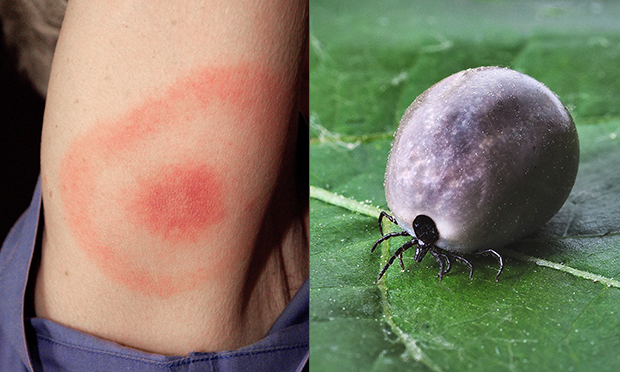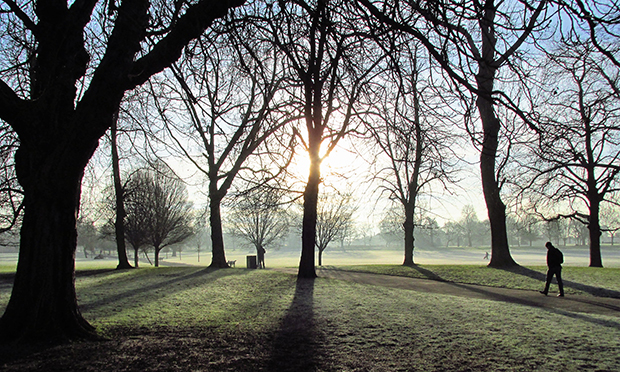Woman catches Lyme disease from tick bite at Clissold Park, say residents

Left: A ‘bullseye’ bite that is a common sign of Lyme disease. Photograph: James Gathany. Right: a tick. Photograph: Creative Commons
Hackney Council has warned residents to be vigilant after a woman reportedly contracted Lyme disease from a tick bite at Clissold Park.
The case was brought to light on Wednesday by family network StokeyParents, which revealed the woman was “bitten in the dog-free area” of the park in Stoke Newington.
A post on the network’s Facebook page has attracted a number of responses, including one that says the infected woman is a member of a local running group, and that “others have been bitten [at Clissold Park] recently too”.
The council says ticks can be found in parks across the capital, and advised people to “always check” for the tiny bloodsuckers after spending time in grassland.
A spokesperson said Lyme Disease is only carried by a “small percentage” of ticks, so the chances of contracting it are very low.
Lyme Disease is a bacterial infection which is “easier to treat if caught early”, according to the NHS.
The most common sign is a circular red skin rash around a bite, often compared to a bullseye on a dartboard.
But not everyone who is infected will get a rash, with some also suffering from flu-like symptoms.
The NHS says most people get better after a course of antibiotics, but a small number can end up with post-infectious Lyme disease, which results in “tiredness, aches and loss of energy” that can last for years.

‘Special place’: Clissold Park. Photograph: David Holt
StokeyParents founder Jenna Fansa said: “It is worrying to hear of an instance of Lyme disease stemming from Clissold Park but I really hope this doesn’t put people off coming – it’s a very special space, a real centre of community life and a chance to enjoy nature and sport.
“Hopefully Hackney Council will put up notices – by being aware of the risks, visitors to the park will remember to check their skin and their children’s or pets’ skin for ticks.
“I wish the lady affected a speedy recovery.”
The council did not answer when asked what action will be taken to warn park-goers.
But the Town Hall spokesperson said: “Ticks are present in parks across London, but only a small percentage of these carry Lyme Disease, so the likelihood of contracting the disease is very low.
“You should always check yourself and your pets after visiting parks or the countryside and remove any ticks as quickly as possible using a tick removal tool.
“To minimise your risk of being bitten you can use insect repellent and avoid walking through dense vegetation.
“If you have been bitten and start to get flu like symptoms or a circular red rash then visit your GP.”
For more information about Lyme disease and ticks, please visit the NHS advice page
